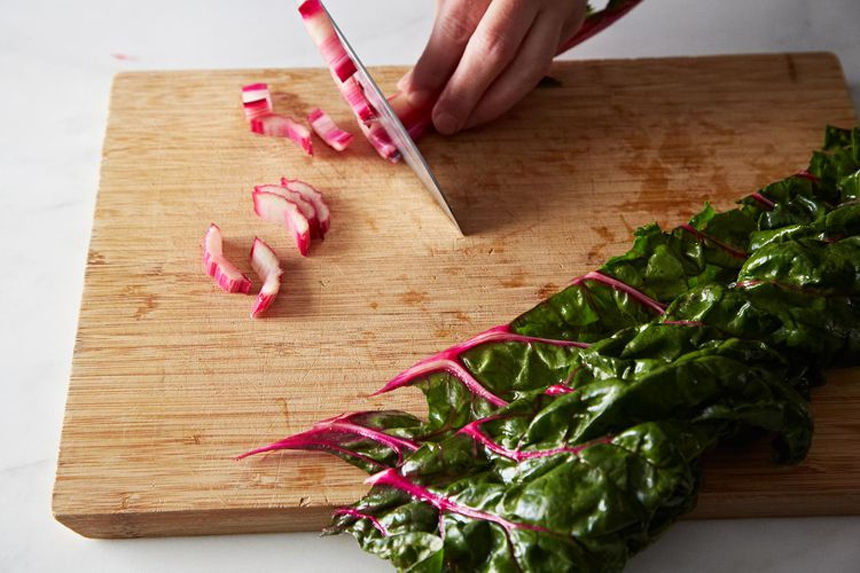Swiss Chard

Swiss chard, like spinach, is a leafy green that’s both nutritious and high in oxalates. Individuals concerned about kidney stones should be mindful of their Swiss chard consumption, potentially limiting their intake to reduce oxalate levels in their diet. Pairing Swiss chard with calcium-rich foods can also help by binding oxalates during digestion.
Swiss chard is a source of vitamins A, C, and K, magnesium, and potassium, offering benefits for bone health, cardiovascular wellness, and more. While its oxalate content warrants caution for those at risk of kidney stones, incorporating Swiss chard into a balanced and varied diet can still be beneficial, provided other sources of oxalates are limited.
Preventing kidney stones through dietary adjustments involves more than just staying hydrated and adding citrus to your diet. It requires mindfulness about consuming foods high in sodium, oxalates, and other compounds that contribute to stone formation. By understanding which foods to limit or avoid, such as table salt, red meat, chocolate, beets, nuts, tea, rhubarb, spinach, swiss chard, and sweet potatoes, individuals can take proactive steps toward kidney stone prevention. Incorporating alternative foods that are lower in these compounds, alongside discussing dietary changes with a healthcare provider, can help manage the risk of kidney stones while supporting overall health. Remember, balance and moderation are vital in enjoying a diverse diet that minimizes the risk of kidney stones.





